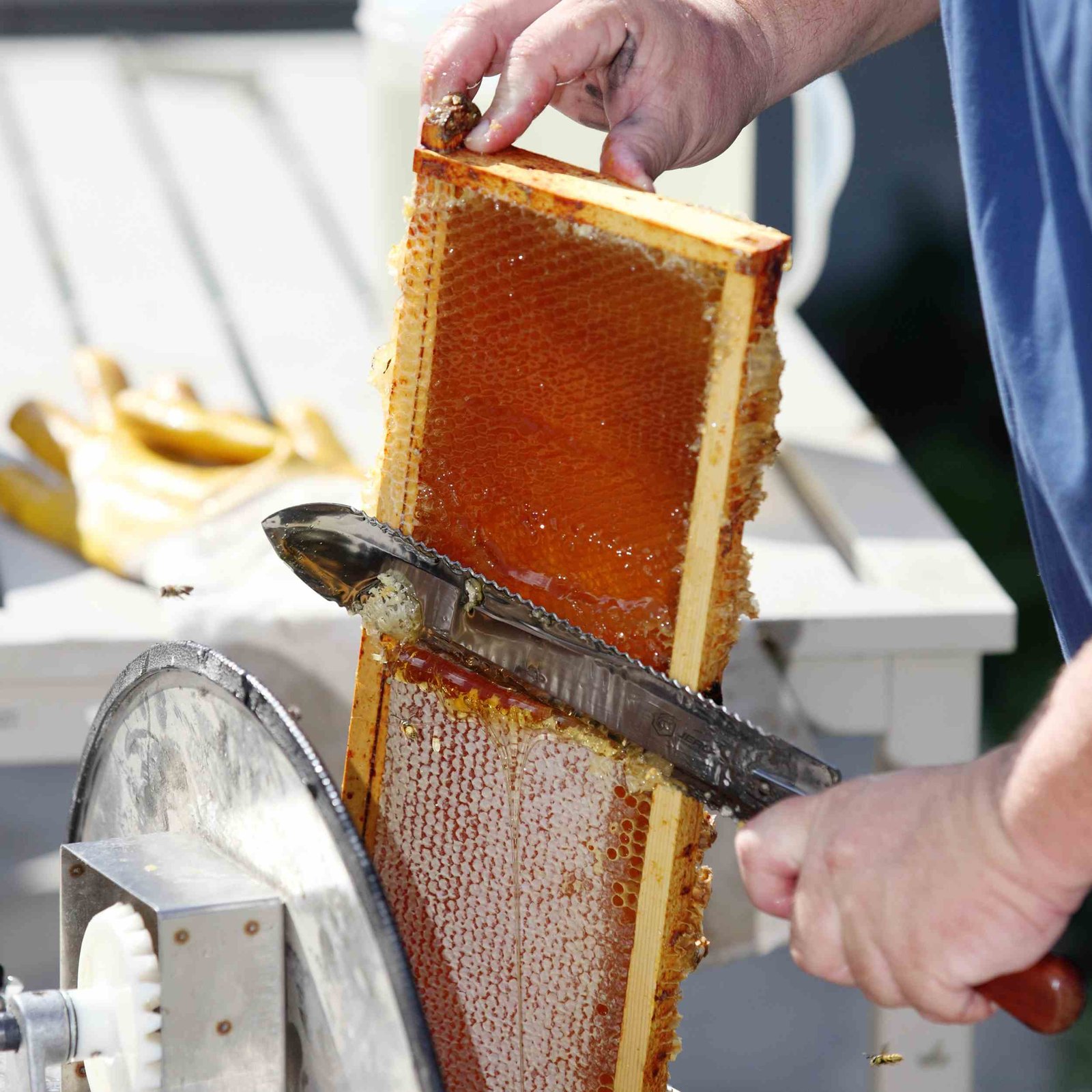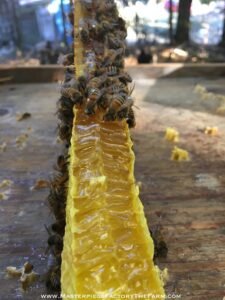Jamaica’s Golden Opportunity:
How Bakabean Farms is Rewriting the Future of Ethical Honey Production
The Buzz About Jamaica:
• 300+ days of annual sunshine creates one of the world’s longest honey flows
• Unique biodiversity yields ideal honey bee territory
Global Crisis, Jamaican Solution:
While industrial beekeepers report:
✓ 50% colony losses in harsh winters
✓ 75% of honey samples contaminated with pesticides
✓ 35% price inflation for raw honey since 2020
Bakabean’s model delivers:
✓ 360-ray forage security
✓ 0% chemical inputs
✓ Verified Sound purity
Our Triple-Bottom-Line Approach:
-
Hive to Market Premium Program
-
Adopt-a-Hive: $x year gets investors x jars + farm access
-
Single-Origin Reserve: Aged honeys ($50/8oz) for luxury markets
-
“Honey Futures” contracts stabilizing farmer income (NFT program)
-
-
BaKABee-Based Agro-Tourism
-
Apiary hands
-
onsite accommodation
-
-
Climate-Resilient Queen Breeding
-
Developing “Jamaican Gold” strain resistant to:
-
Varroa mites
-
Small hive beetles
-
Tropical moisture fluctuations
- Queen import program
-
-
First-Year Roadmap:
Q1: construct processing building
Q2:Establish 20-hive demonstration apiary
Q3: Launch farm-to-table honey pairing dinners
Q4: Open bee conservatory education center
Be Part of the Swarm:
– Pre-order our inaugural harvest (guaranteed)
– Become a Hive Partner (naming rights + profit share)
– Sponsor a Training Apiary (legacy recognition)
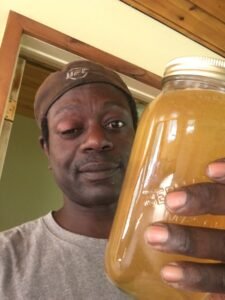
Strategic Plan for Launching an Apiary in Jamaica
Goal: Establish a sustainable, ethical, and profitable beekeeping operation under Bakabean Farms, leveraging Jamaica’s pristine environment to produce premium honey while supporting bee conservation.
Phase 1: Research & Preparation (Months 1–3)
1. Legal & Regulatory Compliance
-
Register the apiary with Jamaica’s Rural Agricultural Development Authority (RADA).
-
Obtain permits for honey production/export Queen bee import
-
Research organic certification (e.g., USDA Organic, EU Organic) for international markets.
2. Site Selection
-
Ideal Location:
-
Near diverse flora (e.g., Blue Mountains, St. Elizabeth’s farmlands).
-
Low pesticide use, clean water access, and shade.
-
-
Start with 1–2 acres (expand as hives grow).
3. Initial Hive Investment
-
Pilot Phase: Start with 10–20 Langstroth hives (manageable for beginners, scalable).
-
Hive Cost: ~$150–$300 per hive (including bees, boxes, and tools).
-
Source local bee colonies (or import resilient queens, e.g., Italian or Buckfast bees).
Phase 2: Setup & Bee Colony Growth (Months 4–6)
1. Hive Installation
-
Space hives 10+ feet apart with morning sun exposure.
-
Provide water stations (bees need hydration!).
2. Bee Health & Maintenance
-
Natural Practices:
-
Use essential oils (thyme, lemongrass) for pest control (avoid chemicals).
-
Plant bee-friendly flora (moringa, coconut, citrus, wildflowers).
-
-
Monitor for Varroa mites (biggest threat to colonies).
3. Labor & Training
-
Hire/train 1–2 local beekeepers (partner with RADA for workshops).
-
Offer volunteer programs for eco-tourists (skill exchange).
Phase 3: Honey Production & Branding (Months 6–12)
1. First Harvest
-
Expect 30–60 lbs of honey per hive annually in Jamaica’s climate.
-
Raw Honey Focus: Cold-processed, unfiltered to preserve enzymes.
2. Product Line Development
-
Premium Honey: Sold locally (farmers’ markets, hotels) and exported.
-
Value-Added Products: Beeswax candles, propolis tinctures, honey-infused rum.
3. Marketing & Sales
-
Certifications: Highlight “chemical-free” and “single-origin Jamaican” branding.
-
Eco-Tourism: Promote “Beekeeping Experiences” for visitors (tours, workshops).
-
Export Channels: Target U.S. organic stores, UK/EU luxury markets.
Phase 4: Scaling & Conservation (Year 2+)
1. Expand Hive Count
-
Scale to 50–100 hives (if market demand supports it).
-
Satellite Apiaries: Partner with local farmers (pollination services + honey revenue sharing).
2. Bee Conservation Initiatives
-
Queen Breeding Program: Preserve genetic diversity; sell resilient queens locally.
-
Habitat Restoration: Plant pollinator gardens across Jamaica.
3. Community Impact
-
Train 10+ local beekeepers annually (create jobs).
-
Advocate for pesticide-free zones near apiaries.
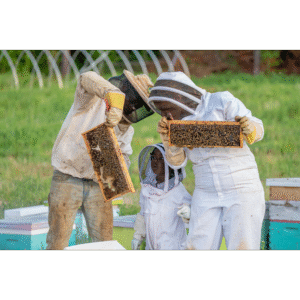
BaKaBee Apiary share
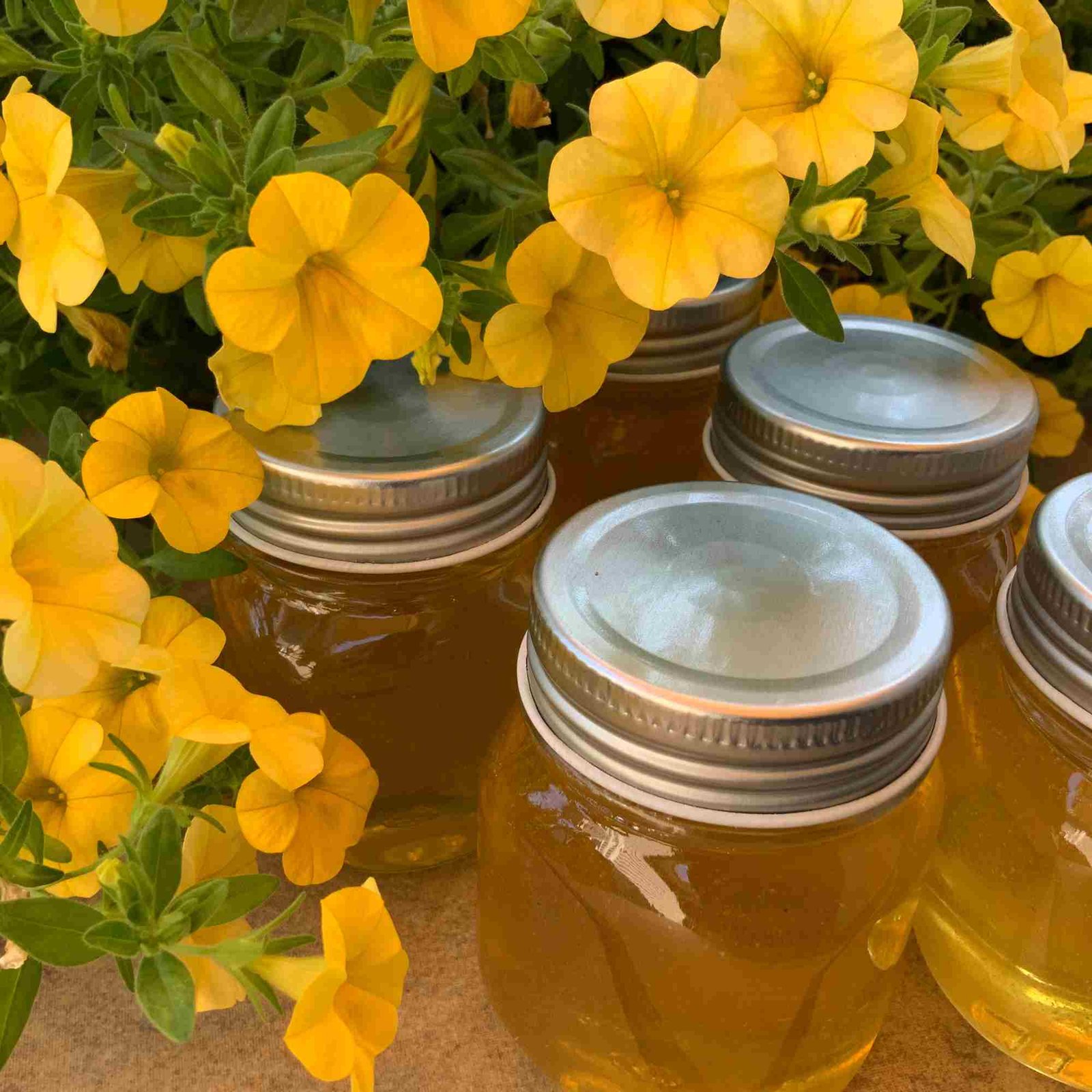
Become a Bee Guardian & Taste the Sweet Rewards –
What’s a Apiary Hive Share?
Think of it like adopting a hive—but sweeter! Just as farmers have CSAs (Community Supported Agriculture), beekeepers have Hive Shares. You invest in a hive at the start of the business venture and, in return, get a share of its honey harvest. Since bees don’t work on a fixed schedule (they’re wild at heart!), this helps BaKaBee beekeepers manage costs while ensuring these vital pollinators thrive.
Why sponsor Your Own Hive?
Honeybees are Jamaica’s unsung heroes—they pollinate our farms, forests, and flowers. But they need allies. When you sponsor a hive with BaKaBee Apiary, you’re not just getting honey—you’re safeguarding the future of:
Local ecosystems (bees = biodiversity!)
Food security (no bees = no mangoes, coffee, or ackee!)
Authentic Jamaican honey (raw, unfiltered, and bursting with island flavor)
Your Hive Share Includes:
A Hands-On Beekeeping Adventure
Ever suited up and stepped into a buzzing hive? Now’s your chance! Your share includes:
Access to Homestead Membership camping
A private apiary tour (smoker included!)
Hive inspection with a master beekeeper (learn bee language, spot the queen, and more)
Perfect for families, eco-warriors, or corporate team-building!
Liquid Gold – Your Honey Share
Your hive’s harvest is 100% raw, unpasteurized, and straight from the comb.
Fun fact: Our bees forage on wild Jamaican blooms—expect super honey!
How It Works:
You Claim a Hive – Pick your share size
We Set It Up – BaKaBee installs your hive with new frames, bees, and TLC.
You Get Honey + Experiences – Harvests happen seasonally (we’ll notify you!).
Pro Tip: Renew yearly to keep your hive buzzing!
Why Bees Need You
Beekeeping isn’t cheap—hives need maintenance, medicines, and love. But with your help:
We plant more bee-friendly flora
We combat threats like pesticides
We train next-gen Jamaican beekeepers
Quarter Share
Receive a quarter of the honey produced by one honeybee colony
Year 1 + 250
Year 1 fees includes the acquisition and setup of a new honeybee colony
Year 2 + 150
BaKaBee Pre Order 250 ml
Receive a 250 ml of BaKaBee or island sourced affiliate apiary honey
- $20 250ML honey
- 1 SQ foot virtual land NFT membership passport
Eighth Share
Receive a eighth of the honey produced by one BaKabee colony
Year 1 + 100
Year 1 fees includes the acquisition and setup of a new BaKabee colony
Year 2 + 100
1 square foot virtual land NHT reservation
Half Share
Receive half of the honey produced by one honeybee colony
Year 1 + 450
Year 1 fees includes the acquisition and setup of a new honeybee colony
Year 2 + 350
Ideal for commercial or large families
Full Share
Receive all the honey from one honeybee colony
Year 1 $800
Year 1 fees includes the acquisition and setup and maintenance of a new honeybee colony
Year 2 + $500
Ideal for vendors health food stores
How Your Funds Will Build a Sustainable Bee Sanctuary
Phase 1 Goal: $35,000
Every dollar transforms vacant riverfront land into a thriving, off-grid hub for bees and sustainable living.
1. Shelter & Basic Survival ($25,000)
- Founder’s flights/meals until farm yields food (minimalist budget).
- Founder’s interim camp setup(tents, solar shower, composting toilet/ septic) while building.
- Earthship shelter materials: Sand, Rebar, bamboo, clay cob, and natural plaster, lime, gravel, concrete.
- Tools: For natural construction (no industrial machinery).
- Initial land preparation(surveying, erosion control, access roads).
- Renewable energy: Solar panels + small hydro system (river-powered).
- Sustainable sewage: Composting toilets and grey water gardens.
- Used truck or van(for hauling materials/ passengers
2. Legal & Infrastructure Foundations ($5,000)
- Business licenses, permits & registration (legally protecting the project).
3. Bee Sanctuary Launch ($5,000)
- 🐝 10 established hives+ boxes, frames, and smokers.
- 🌸 Seeds & seedlings: Bee-friendly flowers (neem, moringa, cerasee) and food crops.
- 🚰 Processing shelter & storage
